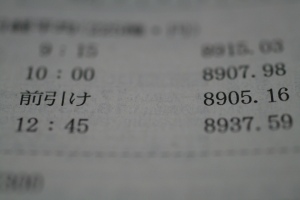Since September, markets have been digesting troves of information which suggest that the global economic recovery is not losing steam. Chinese data was soft showing weak increases in economic output and soft housing prices; the Abenomics train in Japan has ground to a halt; Europe is still in a heavy debt-load, stagnant and seemingly deflationary environment; London’s house prices have started falling and wage inflation is tepid; the oil market is in bear market (drop in asset prices by at least 20%) territory. Of course, explaining the daily movement of market prices is a mug’s game but these realities seem to be what could have contributed to lower asset prices (stocks, bonds, real estate).
It seems as though investors are caught in self-delusion that the massive interventions by the fiscal and monetary authorities in the workings of the market will help resuscitate growth and grow the world economy. The IMF, in its recently completed annual meeting of finance ministers tacitly admitted that the heavy doses of stimuli given to the sick patient that is the economy has yielded very little result.
Shinzo Abe, who almost two years ago rode on the wave of optimism that implementing three major policies would lift the Japanese out of their economic doldrums seems to be coming to terms with reality that the Japanese economy is indeed a very sick patient. The easy policies have been implemented with varying successes. Tax hike resulted in a collapse in second quarter GDP and a projected 0.1 – 0.3% increase in GDP (not what it needs to get on top of its huge debt load) according to the IMF.
Markets have been anticipating the unveiling of full-blown or a more watered-down version of quantitative easing in Europe. Some see it as a panacea to curing Europe’s slumber towards deflation. I don’t. Europe, it seems to me, suffers from deep structural problems, high debt levels, an ageing population and a decrease in start-ups. Pumping money into the European economy without sorting out the banks, unclogging the transmission mechanism and tackling the structural challenges would merely lead to a drop in market interest rates and a relief rally in equities.
Finally, the near 20% drop in oil prices starting in June seems to be hurting important OPEC members such as Iran, Venezuela and Nigeria. Russia, a major oil exporter, has added low Brent oil to its growing list of problems. Some speculate that the drop may simply be reflecting slower global economic growth leading to lower oil demand coupled with increasing oil supply from low-cost, more efficient American shale companies churning out the black stuff. This threatens their fiscal stance and their currencies which could lead to imported inflation in those economies. It is also leading to Saudi Arabia, the swing country, pursuing a market share maximizing strategy by undercutting other members and keeping prices lower for Asian customers. This is a boon for commerce in non-oil producing countries as it translates to billions of dollars in increased purchasing power potentially increasing economic output.
All in all, it is hard to attribute the drop in markets to a Eureka moment in investor’s mind. However, the self-delusion in the power of the authorities to solve economic problems seems to have waned.
Photo: ryoki/Flickr, used under a Creative Commons Licence
